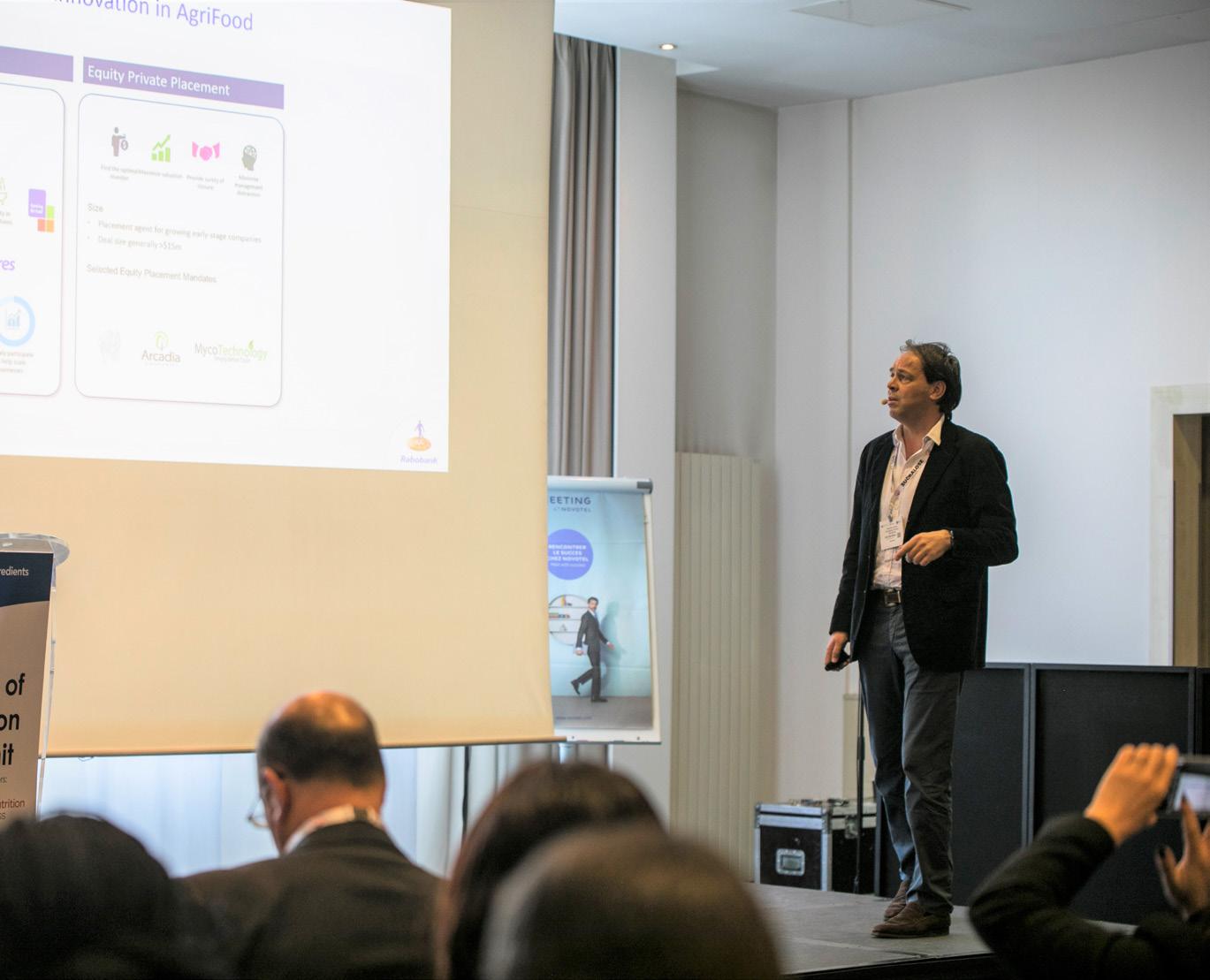
3 minute read
Lessons for startups: Securing funding
Maarten Ooms is Managing Director in Rabobank’s Financial Advisory and Solutions group, where he oversees their Food and Agri Innovation initiatives in the European region. As part of his responsibilities, he assists young growth companies to raise capital in private placement rounds.
Entrepreneurs not only need vision and drive to commercialise their ideas, they also need to raise capital and to fully understand their market.
Maarten Ooms, Managing Director, Rabobank Financial Advisory and Solutions Group
Critical challenges that need to be overcome
“The main financial challenge is raising capital, especially in early rounds. The real challenge for startups is being able to convince potential investors about the fact that their business will give them the right return for the commensurate risk they are taking by investing into them. Another recurring issue for startups is that the only available financing is equity financing (raising capital by selling company stock to investors), which is both expensive and dilutive. Particularly for businesses that have a working capital need, that is not ideal.”
“There are many non-financial challenges. The most important is to thoroughly understand your customers, their needs and the market, in order to get them to buy your product. Making sure that you understand your competitors’ landscape is also key. There are operating challenges as well, such as getting access to production, distribution and finding the right sourcing partners. And last but not least, building a strong team is key for success and can be challenging especially in early stages, when financial stability is still low.”
Fundamental considerations prior to launching
Key indicators of a promising business concept
“The criteria we use for startup selection are essentially five-fold: having a robust team, having a cutting-edge product/technology addressing major industry challenges, having a focus on positively impacting people, profit and planet and feeding the world more sustainably, having a collaborative mind set and a validation to growth stage.”
Securing that all-essential funding
“During ideation stage it will be difficult for a startup with a bright idea, but little capital, to demonstrate to potential investors that their business will generate cash, let alone profit. They probably have not yet tested and validated their product. At this stage, typically, funds are made available by family, friends and angel investors.”
“It is also worth considering the various programmes offered by governments and supranational organisations. Each country often has startup programmes and facilities available that can be cheaper than equity and may not require you to give up a stake in your business. It is important to have a solid business plan and investor deck where all details are thoroughly explained.”
Enabling innovations within the food sector
“Through our leading F&A innovation platform FoodBytes!, Rabobank has built an ecosystem from farm to fork to help spur innovative solutions that address the world’s food challenges. The platform builds lasting connections between the most promising food and agriculture startups, our corporate clients and investors, helping them pioneer a more sustainable future, via our pitch events and our bespoke pilot programme.”
“The bank furthermore offers various forms of capital, via our captive venture capital, private equity funds and growth capital solutions; including our Equity Private Placement and the ‘Subordinated Innovation Loan’, which is designed for private limited liability companies (BV’s) established in The Netherlands, that do not qualify for a bank loan or lease because they have not yet demonstrably produced results and/or because their cash flows are inadequate.”
Visit Fi Global insights to read the full interview with Maarten Ooms : bit.ly/Interview-Maarten-Ooms

Maarten Ooms, Managing Director, Rabobank Financial Advisory and Solutions Group








